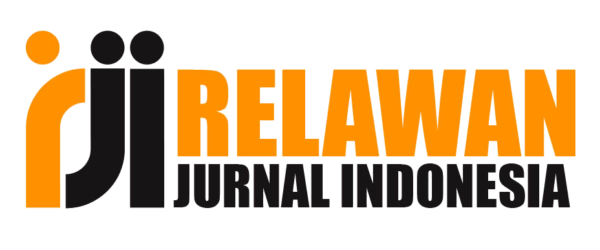Implementation of STEM-ESD learning in improving critical thinking skills in renewable energy material
Abstract
Keywords
Full Text:
PDFReferences
Agusti, K. A., Wijaya, A. F. C., & Tarigan, D. E. (2019). Problem Based Learning Dengan Konteks Esd Untuk Meningkatkan Keterampilan Berpikir Kritis Dan Sustainability Awareness Siswa Sma Pada Materi Pemanasan Global. VIII, SNF2019-PE-175–182. https://doi.org/10.21009/03.snf2019.01.pe.22
Dewan Energi Nasional. (2020). Bauran Energi Nasional. Jakarta: Sekretariat Jenderal Dewan Energi Nasional.
Ennis, R. H. (2011). The Nature of Critical Thinking: An Outline of Critical Thinking Dispositions and Abilities. University of Illinois. https://doi.org/10.22329/il.v6i2.2729
Ennis, R. H. (2013). The Nature of Critical Thinking: Outlines of General Critical Thinking Disposition and Abilities. Sixth International Conference on Thinking at MIT, 2013, 1–8. http://criticalthinking.net/wp-content/uploads/2018/01/The-Nature-of-Critical-Thinking.pdf
Khaeruddin, K., & Bancong, H. (2022). STEM education through PhET simulations: An effort to enhance students’ critical thinking skills. Jurnal Ilmiah Pendidikan Fisika Al-Biruni, 11(1), 35–45. https://doi.org/10.24042/jipfalbiruni.v11i1.10998
Khoiriyah, N., Abdurrahman, A., & Wahyudi, I. (2018). Implementasi pendekatan pembelajaran STEM untuk meningkatkan kemampuan berpikir kritis siswa SMA pada materi gelombang bunyi. Jurnal Riset dan Kajian Pendidikan Fisika, 5(2), 53. https://doi.org/10.12928/jrkpf.v5i2.9977
Linh, N. Q., Duc, N. M., & Yuenyong, C. (2019). Developing critical thinking of students through STEM educational orientation program in Vietnam. Journal of Physics: Conference Series, 1340(1). https://doi.org/10.1088/1742-6596/1340/1/012025
Nurazizah, S., Sinaga, P., & Jauhari, A. (2017). Profil Kemampuan Kognitif dan Keterampilan Berpikir Kritis Siswa SMA pada Materi Usaha dan Energi. Jurnal Penelitian & Pengembangan Pendidikan Fisika, 3(2), 197–202. https://doi.org/10.21009/1.03211
Rahmadani, Y., & Puti, T. N. (2021). Profil kemampuan berpikir kritis dan kreatif siswa SMA terhadap revolusi industri 4.0 dan masyarakat 5.0. Bio-Pedagogi, 10(1), 40. https://doi.org/10.20961/bio-pedagogi.v10i1.52911
Suardi, S. (2020). Implementasi Pembelajaran Berbasis Stem Untuk Meningkatkan Kemampuan Dalam Berpikir Kritis, Kreatif Dan Bekerjasama Peserta Didik Kelas Viia Smp Negeri 4 Sibulue. Jurnal Sains dan Pendidikan Fisika, 16(2), 135. https://doi.org/10.35580/jspf.v16i2.12557
UNESCO. (2012). Education for Sustainable Development in Action Learning & Training Tools (Nomor 2). Paris: United Nations Educational, Scientific and Cultural Organization.
UNESCO. (2015). Education 2030: Incheon Declaration and Framework for Action for The Implementation of Sustainable Development Goal 4. Paris: United Nations Educational, Scientific and Cultural Organization. https://doi.org/10.2307/25094797
UNESCO. (2017). Education for Sustainable Development Goals: Learning Objectives. Dalam Education for Sustainable Development Goals: learning objectives. https://doi.org/10.54675/cgba9153
United Nations. (2018). The 2030 Agenda and the Sustainable Development Goals An opportunity for Latin America and the Caribbean Thank you for your interest in this ECLAC publication. United Nations. https://repositorio.cepal.org/bitstream/handle/11362/40156/25/S1801140_en.pdf
DOI: https://doi.org/10.17509/wapfi.v9i2.66656
Refbacks
- There are currently no refbacks.
Copyright (c) 2024 WaPFi (Wahana Pendidikan Fisika)

This work is licensed under a Creative Commons Attribution-ShareAlike 4.0 International License.
The Journal Wahana Pendidikan Fisika http://ejournal.upi.edu/index.php/WapFi/ is licensed under a Creative Commons Attribution-ShareAlike 4.0 International License
The Journal WaPFi (Wahana Pendidikan Fisika).
All rights reserverd. pISSN 2338-1027 eISSN 2685-4414
Copyright © Faculty of Mathematics and Science Education (FPMIPA) Universitas Pendidikan Indonesia (UPI)










